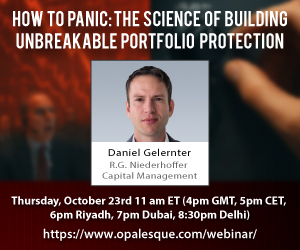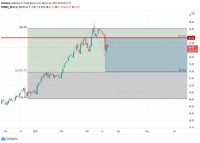|
Lex Islamicus: Preventative & Remedial Measures Protecting Sukuk Investment Account Holders In our first two articles of Lex Islamicus we have explored legal issues facing Islamic finance in one article and Murabaha in a separate article. Moving forward we will be combining both compliance and regulatory issues to benefit readers in an approach that will define each instrument and the legal implications and challenges facing it. Our focus this month will be on the most popular Islamic finance instruments beginning with Sukuk structures. The growth of Islamic finance has resulted in a thriving multi billion-dollar market in Shariah compliant financial instruments known as Sukuk (plural of the Arabic word Sakk, meaning certificate). They are commonly described as Islamic bonds, trust certificates, or Islamic securities and are structured and traded in the capital market in accordance with Islamic law. The Accounting and Auditing Organization for Islamic Financial Institution (AAOIFI) defines Sukuk as certificates of equal value representing undivided shares in ownership of tangible assets, usufruct, and services or the ownership of the assets of particular projects or special investment activity . The AAOIFI has identified fourteen different types of Sukuk bonds, among these, Sukuk al-musharaka (partnership) and Sukuk al-ijarah (lease), these being the most common structures currently. In today’s turbulent financial markets, Sukuk structures have gained popularity as an alternative means to conventional financial instruments. To maintain this growth and gain consumer confidence, mechanisms have to be in place protecting the Sukukholders’ rights. Future discussions will explore available measures protecting Sukuk account holders by examining initiatives aimed to improve Corporate Governance and effecting foreign judgments through Arbitral Awards. Throughout we will take an international approach, using globally recognized governance standards set forth by the Basel II Accords and the New York Convention of 1958 for effecting foreign judgments through Arbitral awards. Although good governance is consistent with Islamic principles, the phenomenal growth of Islamic financing over the past several years has outpaced the development of standardized regulation, calling for a thorough examination of this growth-borne regulatory and Corporate Governance gap. Corporate Governance (CG) is defined by the International Chamber of Commerce as; “the relationship between corporate managers, directors and the providers of equity, people, and institutions who save and invest their capital to earn a return.” It ensures that the board of directors is accountable for the pursuit of corporate objectives and that the corporation itself conforms to the law and regulations. The IFSB has taken the task of creating best practices and recommendations to protect the rights of investment account holders. These recommendations may vary with the different Sukuk types as to what duty is owed under each Sukuk structure and financing mode. The upcoming article series will expand on financing modes of such structures with special attention to the most common Sukuk types and the adherence to the International standards of corporate governance. In addition to preventative measures, we have to examine available mechanism to remedy the injured parties. Arbitration as a private form of dispute resolution that has recently gained traction in resolving International disputes. The New York Convention of 1958 is one of the most important and successful United Nations sponsored commercial law treaties. As of January 1, 2009, 143 states, out of 192 member States, have adopted the New York Convention including all the major players in the Sukuk bonds market, Bahrain, Malaysia, Qatar, and UAE. As Sukuk issuance have gained global acceptance, Arbitration can be an effective tool to resolve international disputes arising under provisions of Sukuk contracts. It is important to examine domestic regulatory laws and its adequacy to protect investors and available mechanisms to enforce such laws effecting foreign judgments under the 1958 New York Convention. In his published dissertation, 2004, Ali Arsalan Tariq , identified three groups of literature that have been written about Sukuk; the first group involves theoretical work, which principally deals with the possible alternatives of issuing financial instruments that can be acceptable within the statutory Islamic legal framework. The second group of literature comprises of the actual Sukuk issuance prospectuses of various corporations, the third group of literature deals with alternative forms of fixed income securities and asset management issues. Such literature is pertinent for analyzing the competitiveness of the Sukuk framework. The fourth group of literature with renewed attention to the rights of investment account holders, both preventative and remedial measures, which will be the focus and theme of our Lex Islamicus series. Although the research method will be adopting a comparative analysis, distinguishing the differences between conventional bonds and Sukuk structures and the duties owed under both common law and Islamic law, the use of empirical surveys will be inevitable to support any claims and contentions that might be concluded. Once issues and gaps are identified in the current Sukuk structure system, recommendations can be made where the current system falls short of meeting the acceptable international standards in both preventative and remedial measures collectively or under specific jurisdictions. We aspire to generate interest with a more interactive approach including feedback from readers, subject matter experts and critics alike. Your feedback and comments are very important to us, please feel free to contact the author via email. |
Opalesque Islamic Finance Intelligence
Lex Islamicus: Preventative & Remedial Measures Protecting Sukuk Investment Account Holders Khalil Jarrar, J.D. |
|





 RSS
RSS










